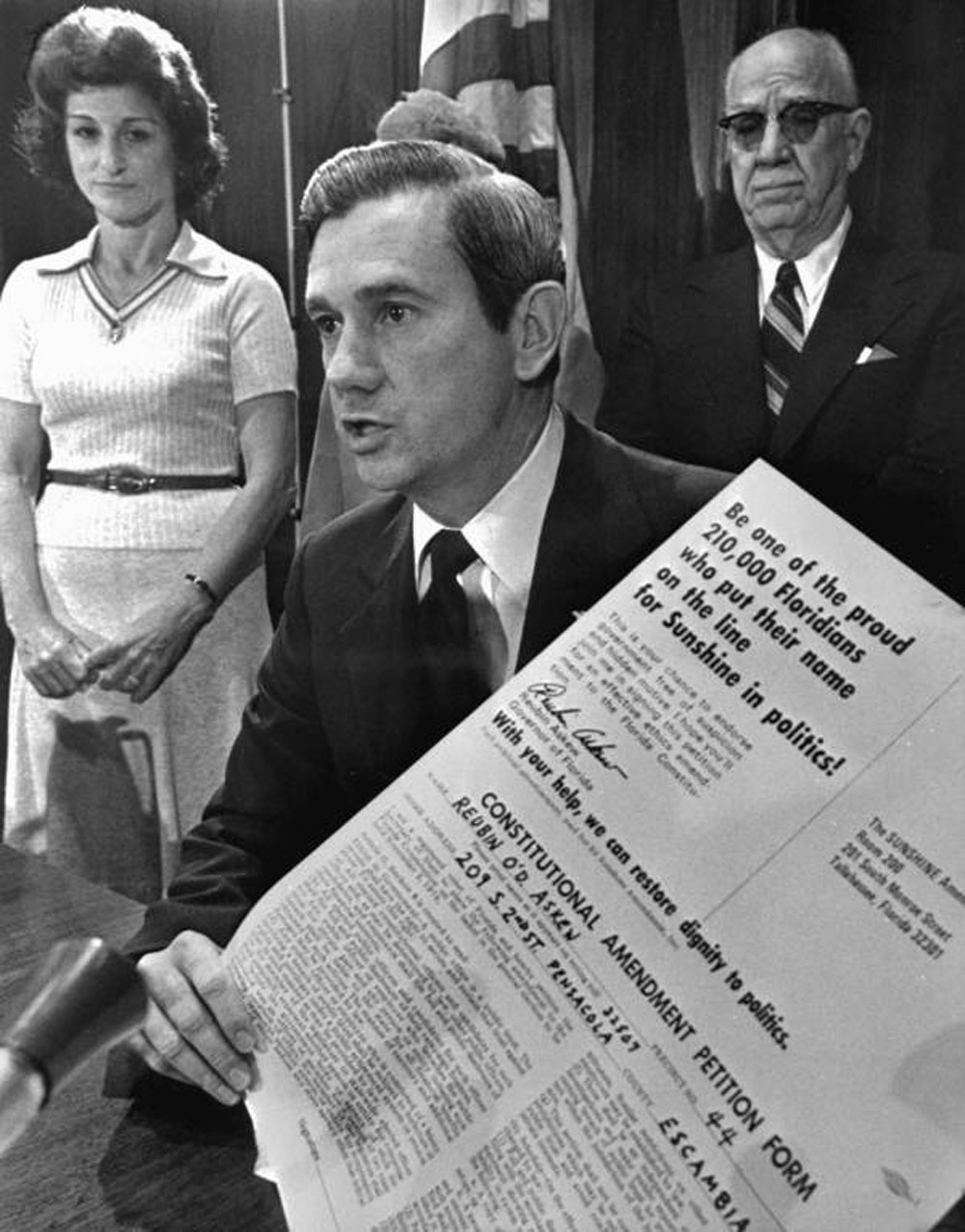
New proposals have emerged in the Florida House and Senate that would make it harder to place proposed constitutional amendments on the ballot.
The House Judiciary Committee and the Senate Judiciary Committee this week are slated to take up newly filed measures that would increase petition-signature requirements for political committees backing ballot initiatives.
The proposals come as the Republican-controlled House and Senate also are moving forward with other bills that would place additional restrictions on the petition-signature process.
The newly filed proposals (House PCB JDC 20-07 and Senate SPB 7062) are scheduled to be heard Tuesday in the House Judiciary Committee and Wednesday in the Senate Judiciary Committee. The fact that they are emerging more than halfway through the legislative session in the key committees indicates they likely have support from House and Senate leaders.
Currently, backers of ballot initiatives must meet two petition-signature requirements to take proposed constitutional amendments to voters. Both requirements are based on a calculation of 8 percent of the number of votes cast in the last presidential election year.
One of the requirements involves submitting an overall number of petition signatures that equal 8 percent of the votes cast statewide. For proposed constitutional amendments on the 2018 and 2020 ballots, that equated to submitting 766,200 petition signatures statewide, based on the number of votes cast in the 2016 election.
The other requirement says backers of ballot initiatives must submit petitions signatures that equal 8 percent of the votes cast in at least half of Florida’s congressional districts — in effect forcing political committees to get signatures from various parts of the state. In 2018 and 2020, that meant hitting the target numbers in 14 of 27 congressional districts.
The newly filed legislative proposals would make it harder to meet that second requirement. They would mandate backers of proposed constitutional amendments meet the targets in all congressional districts — not half.
The targets vary, as the number of votes cast in congressional districts during the 2016 election varied. But requiring political committees to meet the targets in all congressional districts would be more expensive and time consuming than the current requirement.
Republican leaders and influential groups such as the Florida Chamber of Commerce have made a series of attempts in recent years to make it harder to pass ballot initiatives. Much of their focus has been on making changes in the petition-signature process, which can cost millions of dollars as initiative backers hire paid petition gatherers to fan out to different areas of the state.
Political committees have met the signature requirements to place as many as four constitutional amendments on the November 2020 ballot.
Business groups oppose one of those amendments, which would gradually increase the state’s minimum wage to $15 an hour. The state Republican and Democratic parties oppose another proposed amendment, which would revamp the state’s primary-election system. While the primary measure has received enough signatures, it is still awaiting a ruling from the Florida Supreme Court about whether its wording meets legal requirements.
The newly filed legislative proposals, if passed by the House and Senate, would have to be ratified by voters during the November election. That is because they would involve changing part of the state Constitution that deals with petition signatures.
House and Senate committees, meanwhile, have been steadily moving forward with two controversial bills that would place a series of new restrictions on the petition-gathering process. Those bills (HB 7037 and SB 1794) would not require voter ratification. They are scheduled to be heard Tuesday in the House Judiciary Committee and Wednesday in the Senate Rules Committee.
–Jim Saunders, News Service of Florida





























Outsider says
I agree that the amendment process is being abused. Outside political forces are spending money to get gullible voters to make amendments that, once ratified, can’t be tweaked. Deceiving language is used to get the amendments passed. We elect legislators to make laws, which, if it turns out are not quite as intended, can be modified or eliminated. I’m getting tired of being accosted by people wanting me to sign an amendment petition. I walk into the courthouse and tell them “no,” and then am accosted again on the way out. They often don’t even give a real explanation as to what the change would really do.
William Moya says
Anything and everything to keep the oligarchs in power.
Stephen Smith says
Funny isn’t it? Republicans talk about protecting our rights but do everything they can to make it difficult if not impossible to excersise them. Except in cases of religion and guns.